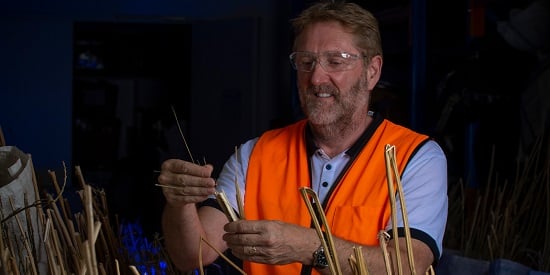Deakin launches new BioFactory as part of Circular Economy Accelerator-Organics project
Media release
Deakin University will establish a BioFactory in Geelong as part of a Circular Economy Accelerator-Organics (CEA-O) project in partnership with the Victorian Government, 20 industry partners, Monash University and RMIT University.
The Deakin BioFactory at the University’s Waurn Ponds campus will pilot and test new processes to use food waste, agricultural waste, and marine by-products to develop new products such as protein-rich feed, nutritional ingredients, fertilizer, cosmetic ingredients and biomaterials for medical and textile applications.
Deakin’s delivery of advanced biomanufacturing capability for the conversion of organic waste into valuable products will be linked to expanded facilities at RMIT for food, water, and biosolids processing, and connected to product, process quality and analysis capabilities at Monash University.
The project aims to reduce organic waste going to landfill but also build long-term collaborative partnerships with agriculture, food, water and other adjacent industries to contribute to transformed industries and supply chains for Victoria and Australia.
The $16.4 million CEA-O project includes $10 million in funding from the Victorian Government through the Victorian Higher Education State Investment Fund (VHESIF).
Deakin’s Vice-Chancellor Professor Iain Martin said the University was proud to play an integral role in positioning Victoria as an innovation leader in industry-focussed solutions for the processing of organic waste.
“This is a significant partnership between three universities who are working closely with industry partners to deliver new waste and recycling solutions - an important step towards establishing a multi-billion dollar bioeconomy for Victoria,” Professor Martin said.
“We are excited to be partnering with Monash and RMIT, as well as more than 20 industry partners, to provide an environment for the creation of sustainable products from food waste, organic farm waste and other biomaterials.
“This is a unique collaboration and we are delighted at the positive contribution we can make to the Geelong community and beyond.”
Alfred Deakin Professor Julie Owens, Deputy Vice-Chancellor Research, said the project confirmed Deakin’s commitment to building Victoria’s circular economy through piloting recycling solutions and helping industry to create new business models that successfully address and release the full product lifecycle.
“Deakin is a leader in this area. We have a proven track record in engaging with industry and bringing together leading researchers across different disciplines to generate sustainable processes, products and waste solutions for our industry partners and communities,” Professor Owens said.
Program lead Professor Colin Barrow said the initiative would link together two existing Industry Transformation Training Centres (the IITC for Green Chemistry in Manufacturing and the IITC for Transforming Biosolids) and a Cooperative Research Centre (the Marine Bioproducts CRC) to build infrastructure that encouraged investment in Victorian advanced manufacturing and created high quality jobs.
More than 15 industry partners have already expressed interest in utilising the new capability.
The project was officially launched today by the Victorian Minister for Higher Education, Training and Skills Gayle Tierney.
“This investment is about doing our part to help establish a more sustainable future and support the development of innovative practices to provide a circular economy,” Minister Tierney said.
“This will not only allow us to continue to build a sustainable future for all Victorians, but ensure our state remains at the forefront of job creation in the clean energy industry.”
To learn more about the Circular Economy Accelerator or discuss partnership opportunities visit: https://www.deakin.edu.au/research/research-partnerships/the-deakin-biofactory

